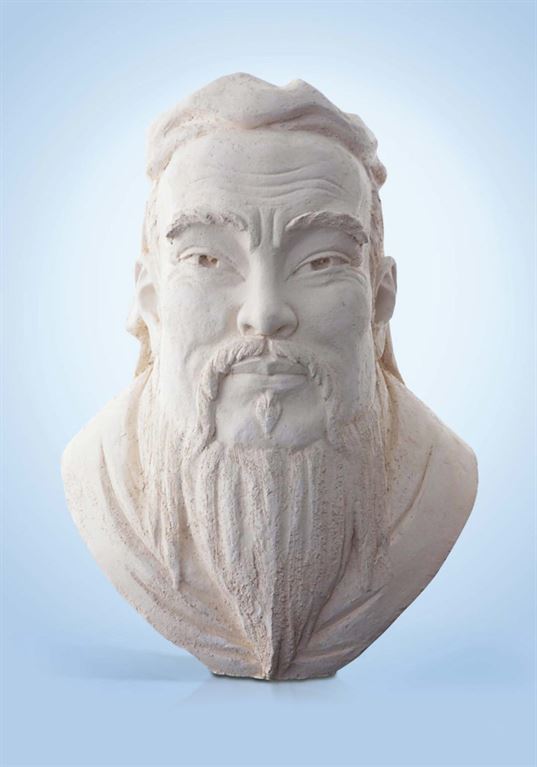Confucius. 2006.
Author: Alexey Leonov
Material: Shamotte
Location: Private collection
Size: 61,5 х 47 х 37,5
The ancient Chinese notionalist and philosopher Confucius (c. 551 – 479 BC) laid the foundations of the philosophical system known as confucianism, which is followed not only by the inhabitants of China, but also by some countries of East and Southeast Asia: Japan, Korea, Vietnam, Singapore. In addition, these principles are so organically incorporated into the basis of national culture that people often do not notice what Confucius’ words are saying.
At the age of a little more than 20 years, Confucius became known as the first professional teacher of the Celestial Empire. His pedagogical doctrine was based on the principle of equal opportunities – “education regardless of the origin” of the student and provided for a minimum fee. The collapse of ancient foundations, turmoil in society led Confucius to the conclusion of the need for a new moral philosophy.
Confucius aimed to understand the meaning of human life, to realize the hidden nature of man. “I question myself every day: am I serving people faithfully, am I sincere in my relationships with friends, am I following the teacher’s commandments?”, said Confucius.
Confucius saw harmony in family relations as a prototype of good social relations. The teacher encouraged practicing the cult of ancestors, traditional for China, as a means of maintaining loyalty to parents, family and the state. Confucius attached great importance to the inner world of man, culture and norms of behavior. The wise Teacher believed that morality is the basis of human conduct, and therefore considered people from the standpoint of morality. Confucius believed that noble people should protect and spread moral values among the individuals, and he saw this as one of the main components of the health of society. The real purpose of people is to be human, therefore, merciful and generous.




